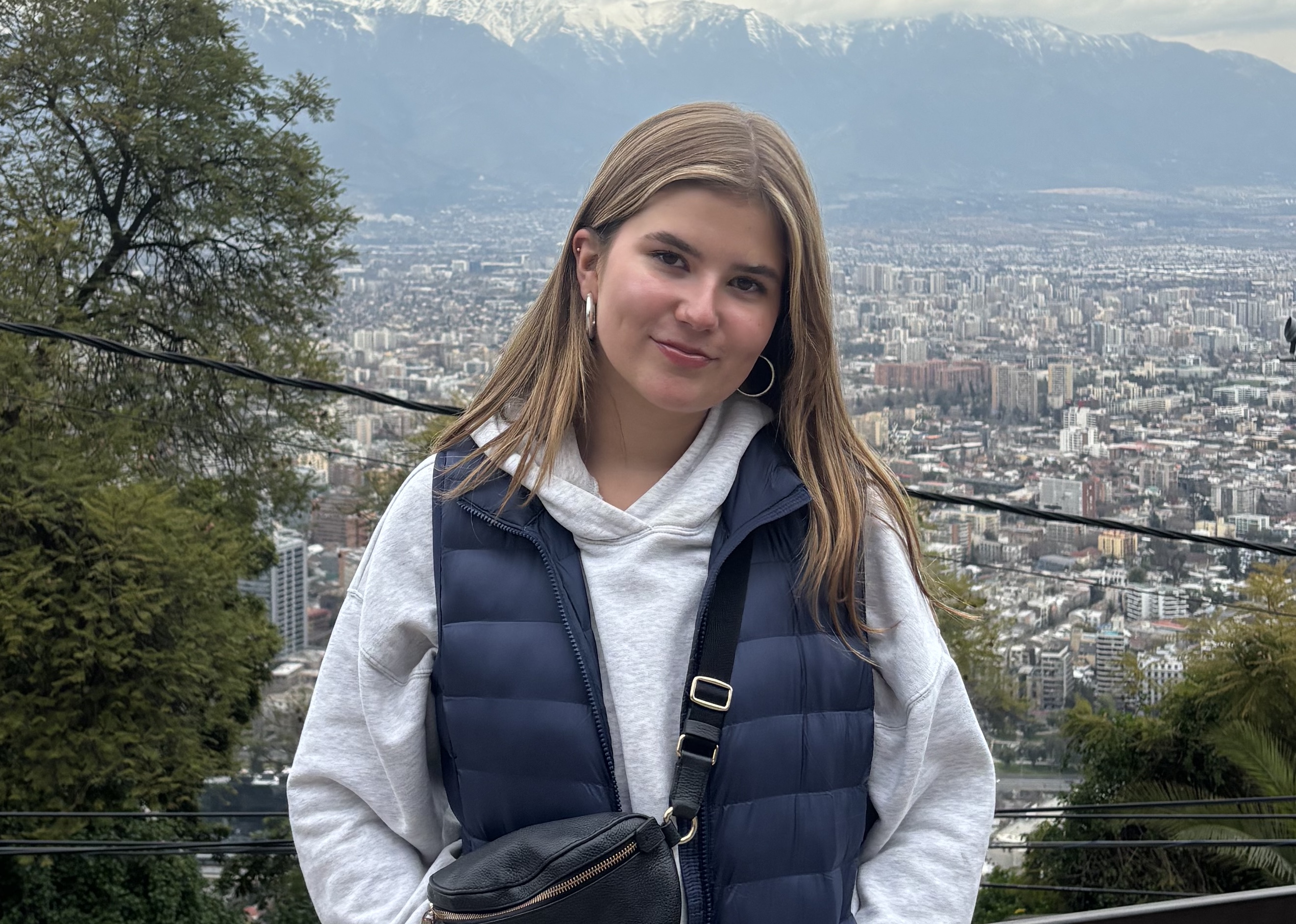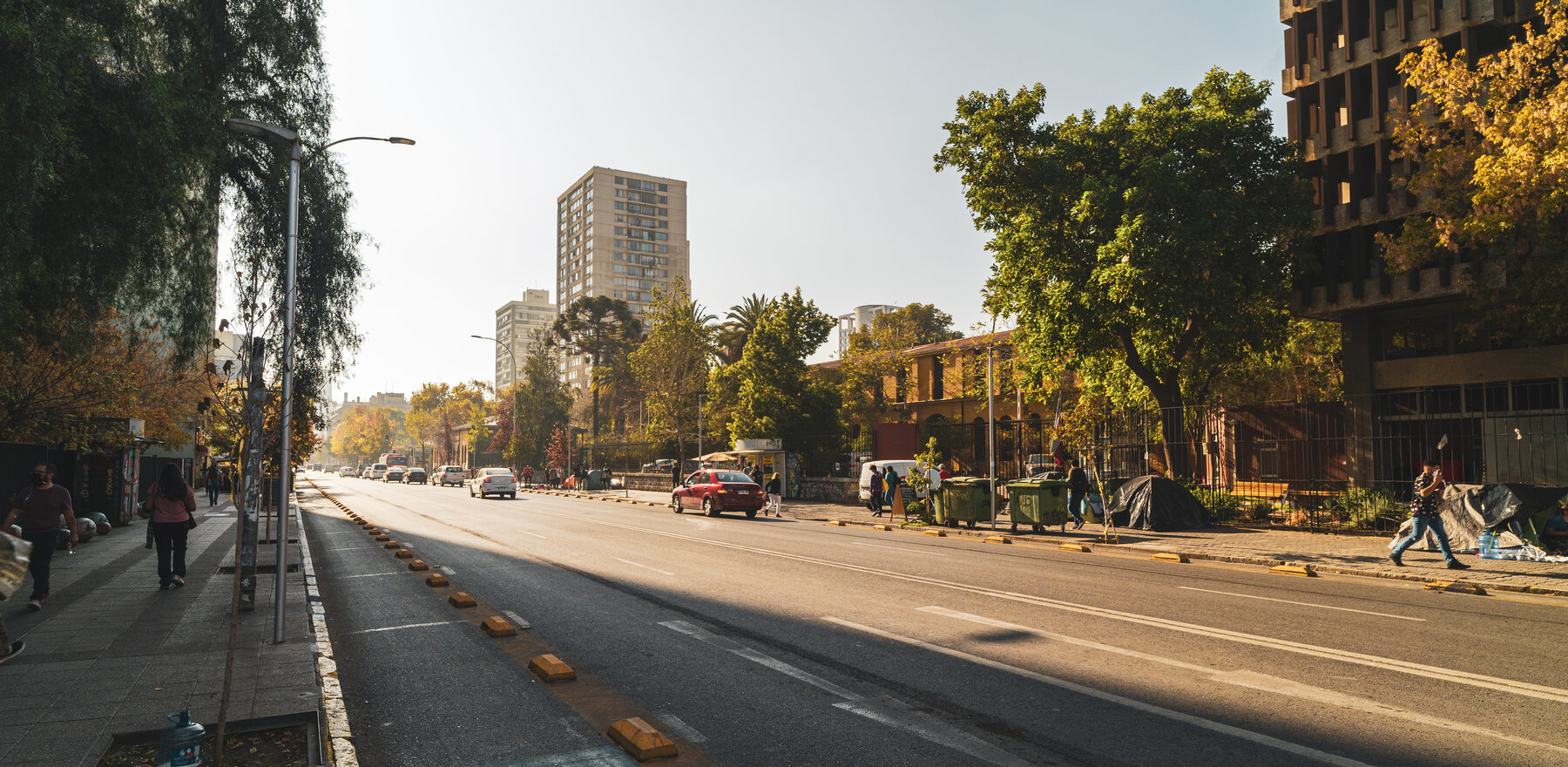For Lehigh student Mari Hanson, an embarrassing stumble on a Santiago bus turned into an unexpected lesson in resilience and self-compassion
Lehigh Launch is an experiential, integrative learning experience for first-year Lehigh University students, being offered in Chile for the first time this year. Faculty advisor Hugo Ceron-Anaya, associate professor of sociology, asked participating students to prepare chronicles about their experiences in Chile, which Global Lehigh will share throughout the semester. Below is a chronicle by Mari Hanson '28.

My brain was an overheated computer, and as I waited for the bus to bring me to my homestay, I was ruminating about the challenges of an extremely busy Thursday.
Earlier that morning, I had attempted to take a taxi to school. I underestimated the morning traffic in Santiago, as I was still adjusting to city living. I tried taking a bus to an 8:30am class that Tuesday, but the experience of being physically crushed by the sheer volume of morning commuters was not something I would choose to relive in this lifetime. Thinking I was ahead of the rush, I ordered a cab. Rookie mistake. The usually eleven minute drive turned out to be twenty-seven minutes. I was late to my Spanish class, and when eventually arriving, spent the next hour and a half struggling with vocabulary and pronunciation. I believe in the power of being patient with yourself when learning a new language or skill. However, when the fact that you cannot speak the language of the locals is omnipresent, the eagerness to communicate can become all-consuming. The next couple hours afterwards were chock-full of note-taking and presentations; by the time my last class finished, I was drained.
While waiting, I was looking forward to being able to decompress from the stressful day during the drive. It usually takes about twenty minutes to reach my block, and I enjoy listening to music while watching the city of Santiago flash by my window.
The bus pulled up to the stop, and I stepped on. I swiped my card, and as I walked through the turnstile, my ankle caught in the gap when it rotated. It was one of those moments that seemed to happen in slow-motion. I stumbled, and frantically tried to pull myself free. I could feel the heat rushing to my face as a line was forming behind me of people hoping to board the bus. Defeated, I stood there with my suspended leg feeling (and looking) like a dork. Thankfully, the woman behind me realized what had happened. Saying (what I believe were) reassuring words, she swiped her card and helped to gently lift my leg out of the modern-day snare. I thanked her with a heavily accented “gracias” and quickly found my seat.
In that moment, I felt like a light-up sign was held over me that spelled “estúpida”. However, as I looked outside at the passing palm trees and apartment buildings, I realized the beauty of the moment. The beauty of the stranger’s act of kindness. The beauty of realizing that while I felt this event was incredibly humiliating, no one on the bus seemed to really mind or even notice. This latter observation was particularly liberating.
While abroad, you will find yourself hitting rock-bottom in the chasm of mortifying mistakes. However, you have the power to switch the narrative. Instead of being caught in a cycle of reliving the moment, find the good. The memory from the bus turned into an invincible shield, protecting me from shame or social anxiety. Whether I mess up while ordering a coffee in Spanish or I work up the courage to introduce myself to local Chileans, I now feel the invisible armor. I think to myself that if I “survived” that one moment, everything else seems like small potatoes. This shift in perspective has allowed me to step outside of my comfort zone, and granted me the ability to laugh while I learn.
